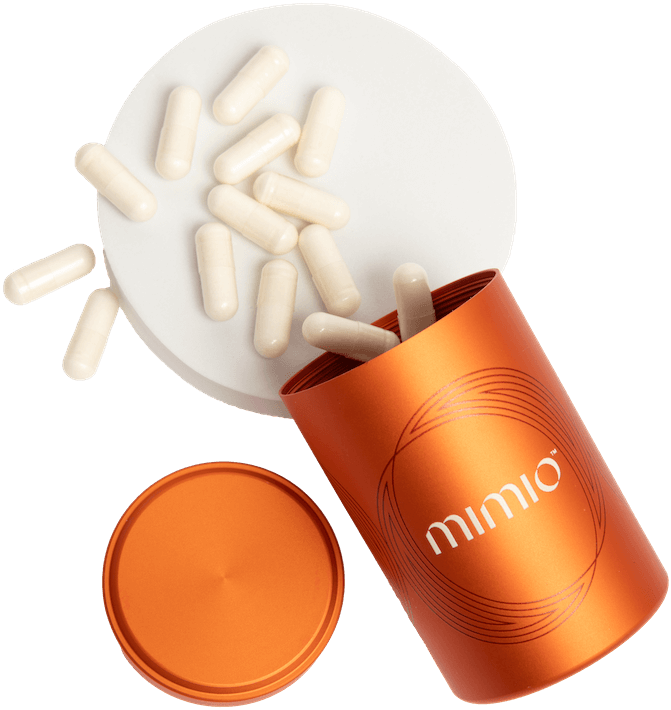Hi there, curious biohackers and healthy agers! Aging is awesome, especially when you have the right strategies in place to make it as smooth as possible. One strategy that’s getting a lot of attention these days is intermittent fasting and its relationship with autophagy. If you’re wondering what all the buzz is about, buckle up! We’re about to dive into the science behind these two powerhouses for health and longevity.
What is Autophagy?
Autophagy is like your body's personal housekeeping service. The word "autophagy" comes from Greek and means "self-eating," which, admittedly, sounds a bit scary. But fear not! This process is all about cleaning out damaged cells, recycling their components, and making room for new, healthy cells.
Why is Autophagy Important?
Autophagy helps us in several ways:
- Cellular Cleanup: It removes damaged cells and proteins, preventing diseases.
- Cellular Repair: It helps cells repair themselves and stay healthy.
- Immunity Boost: It fights off infections.
- Neuroprotection: It reduces the risk of neurodegenerative diseases like Alzheimer's.
Intermittent Fasting and Autophagy: The Dynamic Duo
Intermittent fasting (IF) is an eating pattern that alternates between periods of eating and fasting. The magic of this pattern lies in its ability to trigger autophagy. During fasting, your body shifts focus from growth to repair, which activates autophagy.
The Benefits of Intermittent Fasting and Autophagy
Together, IF and autophagy offer incredible benefits:
- Longevity Boost: Autophagy promotes longevity, and IF enhances it, leading to a longer lifespan.
- Metabolic Health: IF improves insulin sensitivity and blood sugar levels, aided by autophagy.
- Immune Support: Autophagy clears out pathogens, while IF enhances immune function.
Practical Tips for Intermittent Fasting and Autophagy
If you want to jump on the IF and autophagy bandwagon, here are some tips:
- Choose a Fasting Method: Popular methods include 16/8 (fasting for 16 hours, eating for 8) or the 5:2 method (5 days of normal eating, 2 days of reduced calories). Choose one that fits your lifestyle.
- Stay Hydrated: Drink plenty of water during fasting periods to support cellular health.
- Eat Nutrient-Dense Foods: Focus on whole, nutrient-dense foods when eating.
- Be Consistent: Stick to your chosen fasting schedule for the best results.
Mimio: Boosting Cellular Health
If you want to take your longevity efforts to the next level, check out Mimio's Biomimetic Cell Care. It's designed to activate your body's natural regenerative abilities, much like autophagy, helping you maintain cellular health and longevity.
Longevity Diet Tips
Curious about what else you can do to maximize your health? Here are some diet tips based on the longevity research:
- Fruits and Vegetables: Eat at least 4 servings a day. They’re packed with vitamins, minerals, and antioxidants.
- Nuts and Seeds: Aim for 1-2 handfuls a day. They’re rich in omega-3s and other beneficial fatty acids.
- Whole Grains and Legumes: Eat 2-3 servings a day. They stabilize blood sugar, control cholesterol, and reduce inflammation.
- Animal Products: Focus on sustainably harvested fish and seafood, aged cheeses, and lean cuts of high-quality white meat.
- Junk Food: Limit processed foods and junk food to once or twice a week.
- Fermented Foods: Try kombucha, miso, or kimchi for a healthy gut. Aim for 1-2 servings a day.
- Supplements: Consider scientifically backed supplements like Mimio's fasting mimetic supplement to support health and longevity.
Conclusion
Intermittent fasting and autophagy are like the dynamic duo for a longer, healthier life. By embracing these natural processes, you can boost cellular health, improve metabolism, and enhance overall well-being. Aging is awesome, especially when you have the right strategies to make it a breeze.



